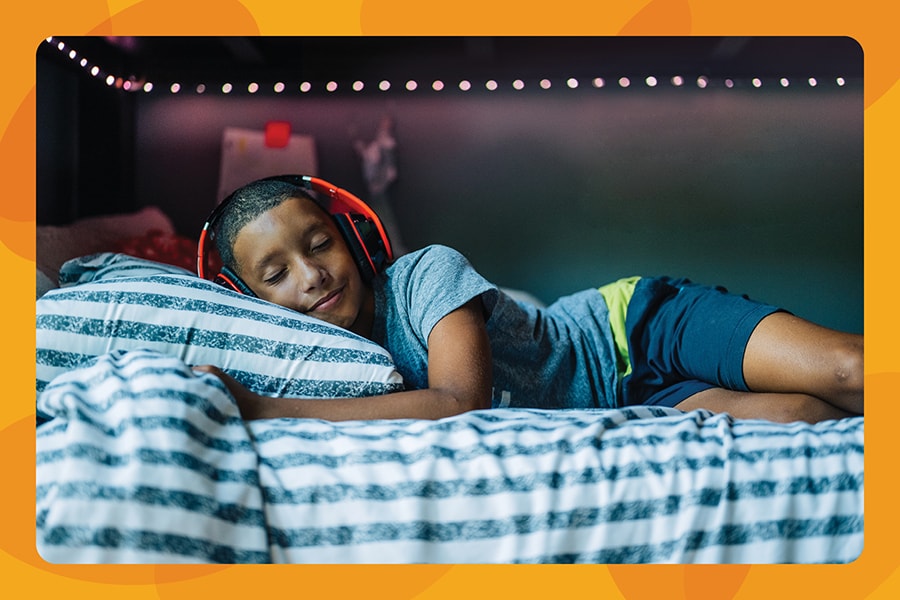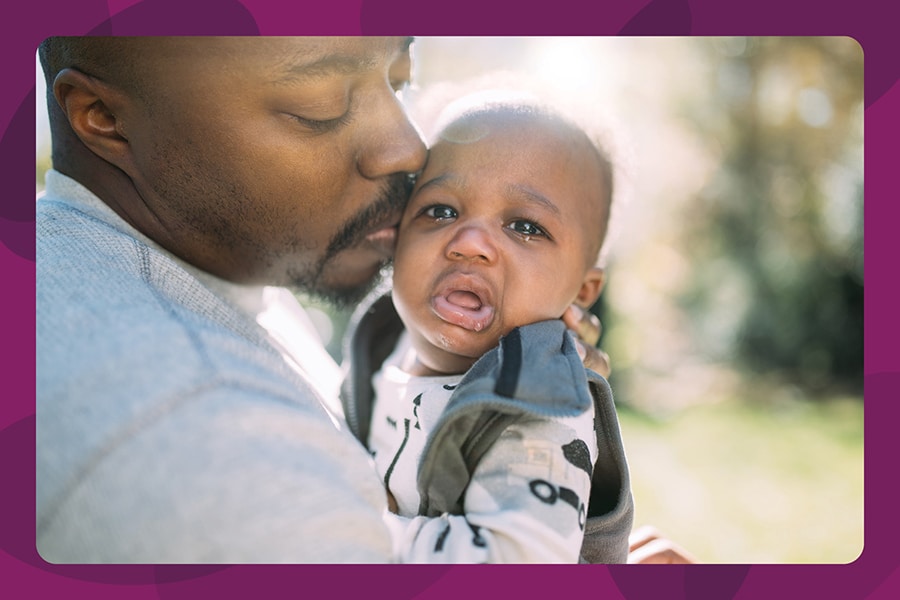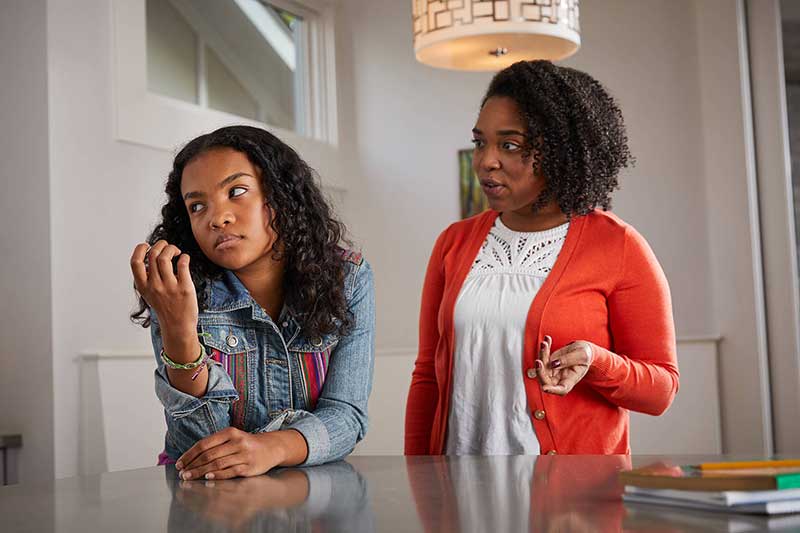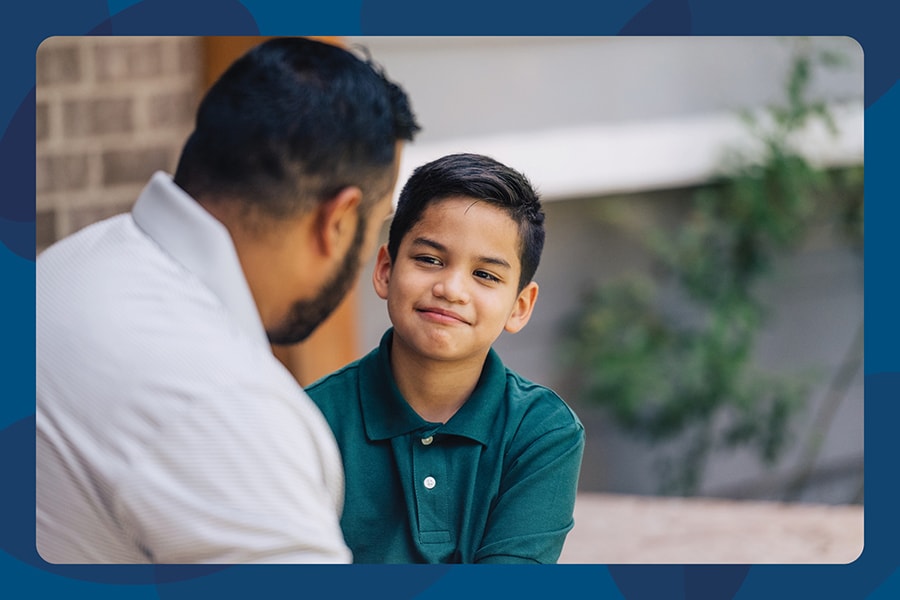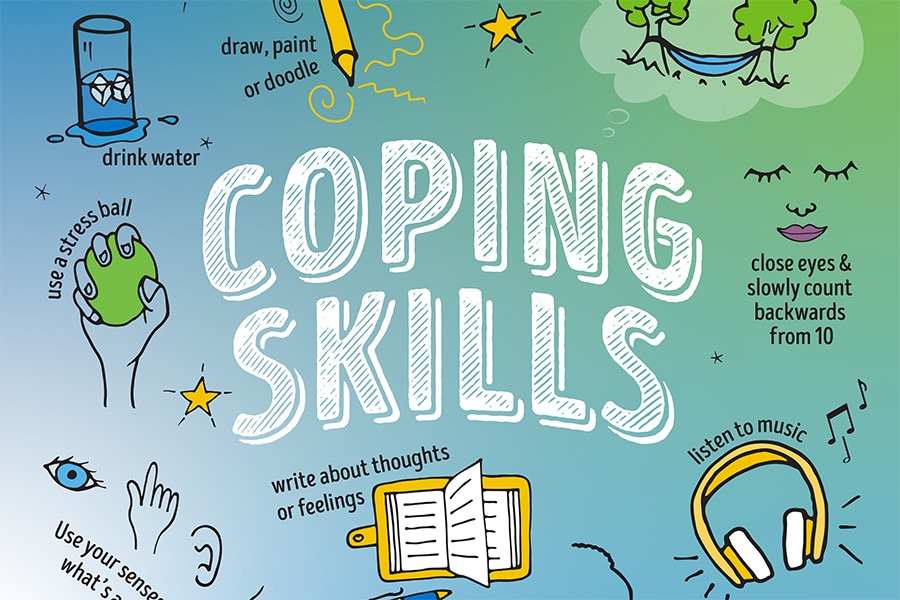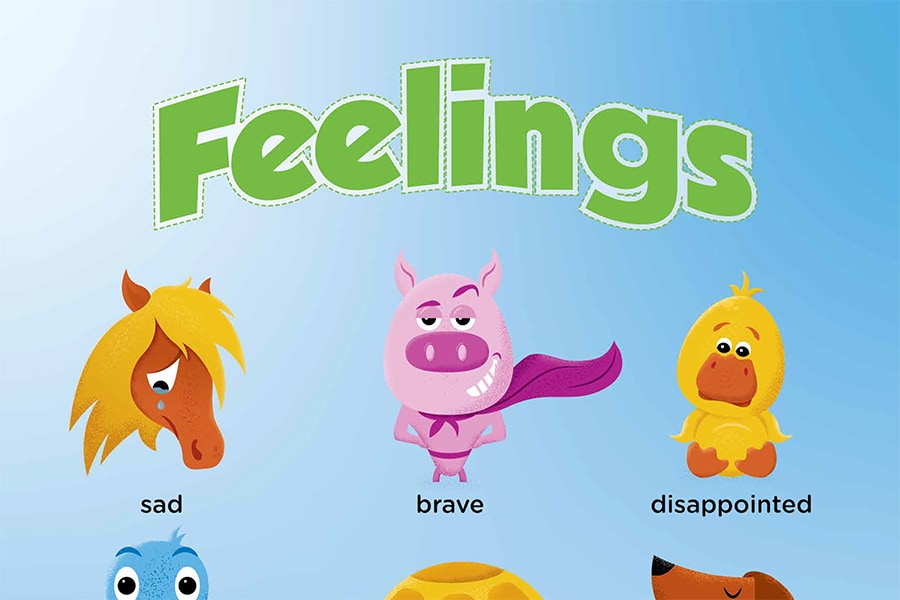Helping Kids Work Through Disappointment
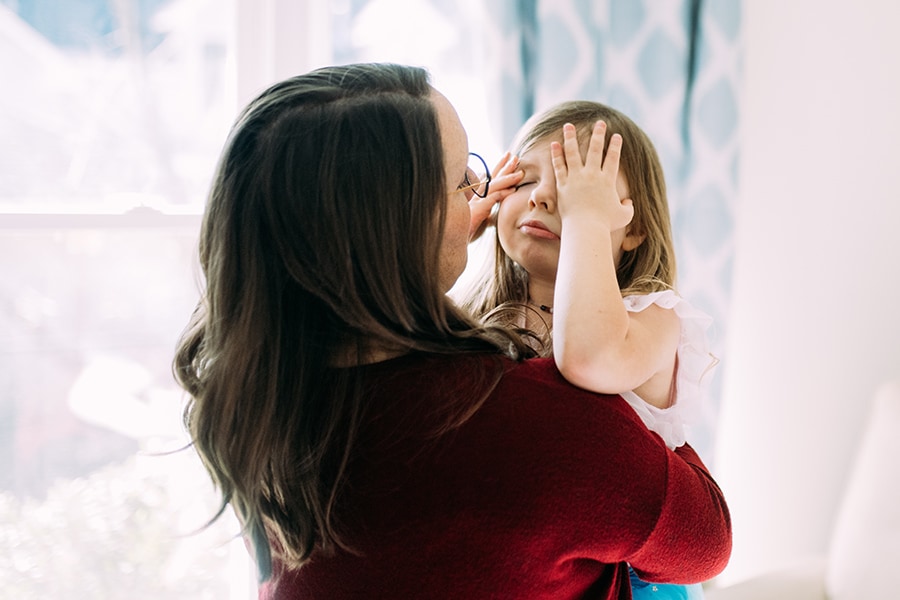
As much as we’d like our kids to be happy all the time, it’s impossible to shield them from disappointment and the feelings that come with it, like discomfort, overwhelm, stress or sadness. Disappointment is something we’ll all experience at different times throughout life, starting at a young age.
If we want our kids to grow up to become adults who can cope with disappointment in healthy ways, we have to build their resilience when they’re young. Read on to learn how to help kids cope when things don’t go the way they’d hoped.
In this article:
What do I do when my child feels disappointed?
When kids feel disappointed, it’s normal for us adults to try to fix it, to save them from it, or even to want them to get over it and move on. But these responses don’t help kids learn the skills they need to cope with disappointment as they grow up.
Kids aren’t born knowing how to cope with any feelings, including disappointment. It’s something they must learn and practice over time with help from safe, stable, nurturing adults. When kids are struggling with disappointment, our job is to teach them how to cope and guide them through it, not around it.
It’s hard for everyone to cope with disappointment, even adults. So, start by empathizing with your child’s feeling of disappointment, and approach them with the right mindset. Try telling yourself:
- “Kids aren’t born knowing how to work through emotions. I must teach them how.”
- “My job is to help my child learn how to cope with disappointment, not save them from it.”
- “I’m thinking about the long-term goal of building their resilience, not offering a quick fix.”
- “Disappointment is a normal part of life, and like all feelings, it’s OK to feel it. It’s not good or bad, positive or negative.”
- “Their feeling is valid. Even if I wouldn’t feel the same way, it’s real for them.”
Next time your child feels disappointed, embrace the moment and see it as an opportunity to help them develop skills they need now and in the future.
How can I prepare my child to face disappointment?
Normalizing all feelings, including disappointment, can help kids understand that their feelings are normal and OK. It can also help them sit with their emotions rather than fighting them or trying to avoid them because they think they’re wrong or that they shouldn’t feel a certain way. When we have safe and supportive conversations about emotions, we’re giving kids the skills to cope in the moment and encouraging them to have similar conversations in the future.
Don’t wait until your child is experiencing disappointment to talk about feelings. It’s most helpful to lay the groundwork for these conversations in everyday moments and not in the heat of the moment. Create safe opportunities to talk regularly about feelings so that it becomes normal, routine and familiar. Even when your child is young, talk openly about feelings with them and teach them that …
- All feelings are OK and normal.
- Feelings aren’t good or bad, positive or negative.
- Feelings are temporary.
- It’s OK to talk about feelings.
Even though you can start talking to kids about feelings when they’re young, it’s never too late to start. Everyone can benefit from open conversations about feelings at any age.
What to say to a disappointed child
We now know that our role as parents and caregivers is to help our kids work through disappointment, not around it. We also know that it’s important to normalize all feelings, including disappointment, starting when our kids are young. But what do we do in the moment when our kids are face-to-face with disappointment? Start by talking about it:
- Ask open-ended questions, and listen. Every child responds differently to disappointment, so try not to make assumptions based on their behavior. Instead, start a conversation with an open-ended question, let them take the lead, and listen. Encourage them to keep sharing by saying, “How are you feeling about that?” Or, “Tell me more.”
- Encourage them to label their feelings. It’s hard to work through what we can’t name, so we need to help kids name what they’re feeling. Oftentimes, kids say they’re mad when things don’t go the way they’d hoped because they’re familiar with the word. Help them go beyond mad by using a feelings chart or gently prompting them: “Some people feel disappointed when things don’t work out. I wonder if you’re feeling disappointed. Is that right, or is it something else?”
- Normalize and validate their feelings. What may seem silly or insignificant to an adult may be a big deal for a child. Resist the urge to minimize or dismiss what they feel by saying, “It’s not a big deal.” Instead, let them know you understand and that whatever they feel is OK and normal: “It makes sense you feel disappointed it didn’t work out. I get that. It’s normal to feel disappointed when things don’t go the way we’d hoped they would.” You may even share a time you experienced disappointment.
How do I help my child work through disappointment?
Once we acknowledge and validate kids’ disappointment, we have to teach them how to cope in healthy ways. The goal is to build kids’ resilience by equipping them with coping skills to work through their feelings now and in the future.
- Teach kids a variety of coping skills they can use to calm their bodies and minds, like taking deep breaths, using their senses to bring them into the present moment, listening to music or moving their bodies. Practice coping skills with them regularly, so that those skills become familiar and easily accessible when kids need them.
- Give them choices. When things don’t work out the way we’d planned, everything can feel out of our control, but offering kids opportunities to choose can give them a sense of control. For example, “I know it’s a bummer the party was canceled. Would you rather play a board game or go to the playground?”
- Encourage them to problem-solve. It may be easier to step in and come up with solutions to save kids from disappointment, but remember, it’s OK for them to feel disappointment, and they need opportunities to work through it. Encouraging kids to problem-solve shows them that you believe they can figure things out, which builds their confidence. For instance, if a playdate gets canceled, challenge your child to think of what they could do instead. You might say, “I know you were excited to play with your friend. I wonder, what’s something fun we could do instead?”
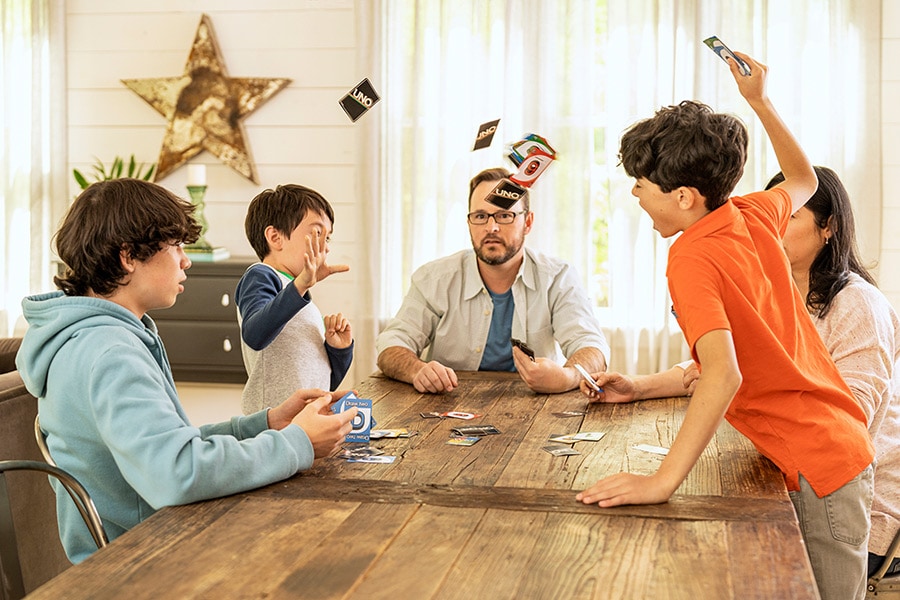
How do I teach my child to tolerate disappointment?
It’s hard for anyone to think clearly in the heat of the moment, kids included. Once the feeling of disappointment has passed and your child is calm, help them process what happened and offer perspective. Talk with them about how it’s hard to feel disappointed, but that feelings are temporary, and you’ll help them learn how to work through it.
There are also things we can do proactively to help kids tolerate disappointment:
- Use everyday moments to practice. For example, if your child has a hard time losing, it can be tempting to let them win to avoid the meltdown or conflict. But that doesn’t prepare them to face bigger disappointments later in life. Instead of letting them win, play by the rules, and if they lose, help them through it by validating their feelings and teaching them healthy ways to cope. When you do this, you’re normalizing that loss is a part of life and building their capacity to tolerate it.
- Help kids focus on what’s within their control by teaching the difference between what’s certain and what’s possible. Oftentimes, disappointment comes from unrealistic expectations or misunderstanding what’s guaranteed versus what’s uncertain. For example, if a friend says they “might” come over, explain that “might” means it could go either way—this can help set realistic expectations. Or, clarify conditional situations, like saying, “If it's not raining, we'll go to the park in 15 minutes. But if it’s raining, we’ll stay inside.” By understanding these differences, kids learn to set realistic expectations.
- Teach them how to challenge and reframe their thoughts. It’s easy for our thoughts to become distorted. For example, “This ALWAYS happens!” Thoughts like these are often untrue and only make us feel worse. Instead, teach kids the power of challenging thoughts and reframing them to be true and helpful. For example, “I’m so disappointed my friend is sick and that we can’t play today, but we got to play yesterday, and hopefully we can play again later this week.”
When should I seek professional help for my child?
It’s hard to watch kids navigate disappointment. Try to have realistic expectations and be patient with your child (and yourself). Keep in mind, they’re still learning how to cope with emotions in healthy ways and they need patience, support and compassion.
If your child is experiencing extreme reactions to disappointment, or is struggling in any way, don’t hesitate to reach out to a licensed mental health professional for guidance and support.
